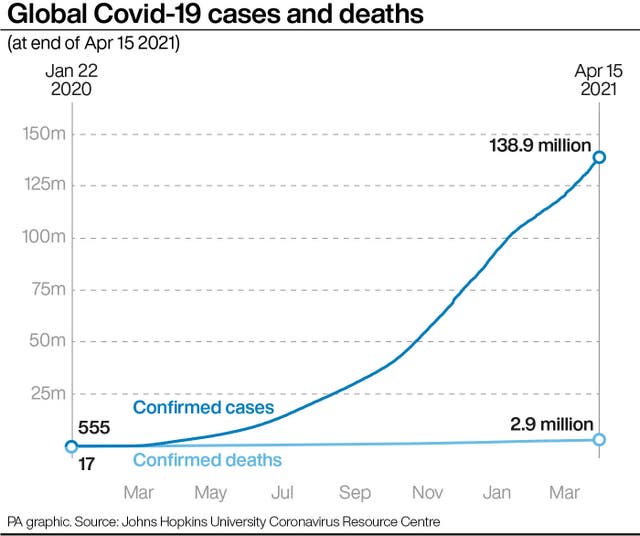Past Covid infection ‘does not fully protect young people against reinfection’
Researchers said vaccination is needed to boost immune responses, prevent reinfection and reduce transmission.

Previous coronavirus infection does not fully protect young people against reinfection, research suggests.
Researchers said that despite previous infection and the presence of antibodies, vaccination is still necessary to boost immune responses, prevent reinfection and reduce transmission.
They added that young people should take up the vaccine whenever possible.
According to an observational study of more than 3,000 healthy members of the US Marine Corps, most of whom were aged 18-20, between May and November 2020, around 10% (19 out of 189) of participants who had previously been infected with Sars-CoV-2 (seropositive) became reinfected.
This was compared with new infections in 50% (1,079 out of 2,247) of participants who had not previously been infected (seronegative).
Although the study was in young, fit, mostly male recruits, the researchers believe the risk of reinfection will apply to many young people.
However, the exact rates of reinfection will not be applicable in other settings, because of the crowded living conditions on a military base and close personal contact required for basic training likely to contribute to a higher overall infection rate than elsewhere.
But researchers found that only 0.65% of those who had had Covid-19 during Denmark’s first wave tested positive again during the second wave, compared with 3.3% of people who tested positive after initially being negative.
In addition, a preprint study including British healthcare workers found that those who had not been previously infected had a five times higher risk of being infected than people who had a past infection.
Professor Stuart Sealfon, of Icahn School of Medicine at Mount Sinai, New York, and senior author of the study, said: “As vaccine rollouts continue to gain momentum it is important to remember that, despite a prior Covid-19 infection, young people can catch the virus again and may still transmit it to others.
“Immunity is not guaranteed by past infection, and vaccinations that provide additional protection are still needed for those who have had Covid-19.”
Recruits who tested positive for a second infection during the study were isolated and researchers followed up with additional testing.
Levels of neutralising antibodies were also taken from subsequently infected seropositive and selected seropositive participants who were not reinfected during the study period.
Of the 2,346 participants followed long enough for this analysis, 189 were seropositive and 2,247 were seronegative at the start of the study.
Across both groups, there were 1,098 (45%) new infections during the study.
Among the seropositive participants, 19 (10%) tested positive for a second infection during the study.
Of the recruits who were seronegative, 1,079 (48%) became infected.

They found that, among the seropositive group, participants who became reinfected had lower antibody levels against the virus than those who did not.
Comparing new infections between seropositive and seronegative participants, the authors found that viral load – the amount of measurable virus – in reinfected seropositive recruits was on average only 10 times lower than in infected seronegative participants.
This suggests some reinfected individuals could still be able to transmit the virus, but the authors noted this will need further investigation.
In the study, most new cases were asymptomatic – 84% (16 out of 19 participants) in the seropositive group, and 68% (732 out of 1,079) in the seronegative group – or had mild symptoms, and none were admitted to hospital.
The authors noted some limitations to the study, including that it is likely to have underestimated the risk of reinfection in previously infected individuals because it does not account for people with very low antibody levels following their past infection.
They were also unable to determine how seropositive recruits contracted their previous infection and confirm it by PCR test or determine how severe it was and what symptoms they had.
Researchers said they also could have missed detectable infections that occurred between the PCR testing every two weeks during the study, published in The Lancet Respiratory Medicine journal.





